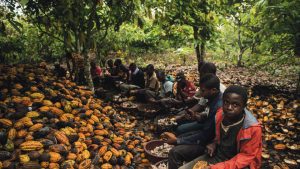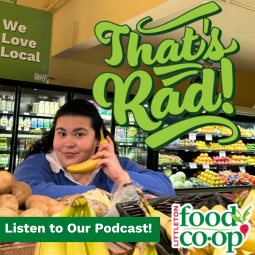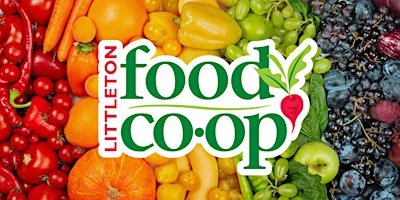All chocolate is sweet. Yes, sometimes there’s sea salt or a hearty nut involved, or a bitter aftertaste, but the overwhelming amount of chocolate can be lumped into the “sweet” category. So how do you get sweeter than sweet? You make it through fair trade processes and without slave labor.
Slave labor is considered to be any labor that invokes a human rights violation. Unfortunately, this burden often falls on one of the most vulnerable populations: low-income children. Sometimes, it initiates from a malicious place, but other times it comes from a place of desperation of families wanting to create a better life and farmers needing to cut costs because of the low price of cocoa. No matter the origin, many children spend their adolescence doing hard labor on farms instead of studying in school. The fair trade movement is about correcting this practice through “better prices, decent working conditions, local sustainability, and fair terms of trade for farmers and workers in the developing world,” according to the Fairtrade Foundation. Companies can become “certified fair trade” through a selection of independent organizations.
When most people discuss unethical labor and practices in the chocolate industry, they are referring to the Ivory Coast of Africa. Ivory Coast farmers supply about 30% of the cocoa beans needed to sustain the world chocolate market. Children here can be paid just 85 cents a day for contributing to a billion dollar industry. While these inhumane conditions have existed since long before any chocolate was sold in stores, large-scale movements to actually do something about it only came into focus around the last turn of the century. The overarching goal of these movements was obviously to eradicate child labor. That goal has sadly not been reached. What has come from this is more consumer awareness of foods’ value chains and the emergence of new chocolate companies who want to lead the way in ending such poor conditions in the Ivory Coast. You may recognize them as the “higher priced brands.” This is because the organizations pay a “fair trade premium” to their farmer partners so they can collaboratively work to end cycles of poverty.
Companies leading the way towards an equitable chocolate industry include:
- Tony’s Chocolonely
- Taza Chocolate
- Theo Chocolate
- Endangered Species Chocolate
- Lake Champlain Chocolate
- TCHO Chocolate
*We want to take a second to acknowledge the imperfections of this list. First, just because a company is not on this list doesn’t mean they engage in unethical practices. Sometimes, small companies do not have a big enough following to be recognized for their efforts, and/or they choose not to register with a third party organization even though they qualify. Even the large corporations that have become synonymous with child labor in the chocolate industry are setting goals for fairer conditions in the near future. Secondly, these third party certifications have come under fire for their ways of enforcement that allow farmers to easily sidestep an inspection. However, these imperfect systems are raising awareness of this prevalent issue, which is the first step in improving our global food systems.
Some resources to learn more:
https://blog.equalexchange.coop/child-labor-in-the-cocoa-industry/
https://laborrights.org/in-the-news/was-your-chocolate-produced-using-child-slave-labor








